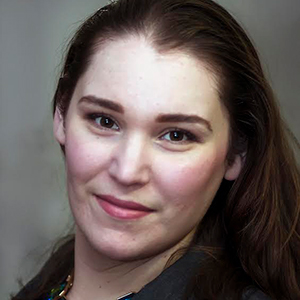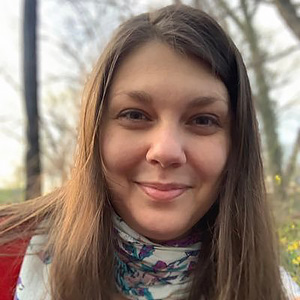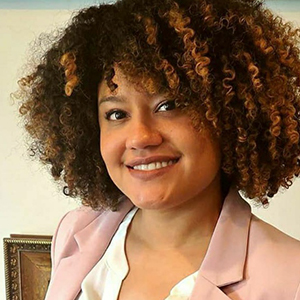Career-development programming at the annual meeting
No scientific conference is complete without a healthy dose of professional development. The annual meeting of the American Society for Biochemistry and Molecular Biology in April in Philadelphia offers a collection of programming to meet a variety of needs for members of all career stages and interests. This year, the lingering effects of COVID-19 as well as diversity, equity and inclusion come into focus throughout our programming.
Take time to connect with other attendees, sharpen your transferable skills, reflect on the year that was, and consider what the future holds for higher education and the biomedical science research workforce.
Diversity, equity and inclusion
The ASBMB is committed to supporting and enhancing diversity, equity and inclusion in the fields of biochemistry and molecular biology. We continue these efforts with a pair of events at the annual meeting that critically examine barriers experienced by women and historically excluded groups in the science, technology, engineering and mathematics workforce.
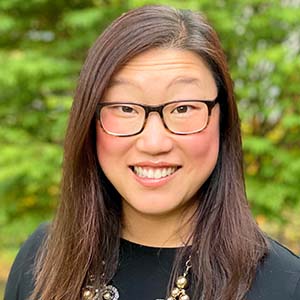
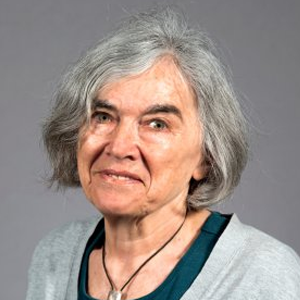
The evolution of work–life integration in the time of COVID-19
Integrating work and personal life is challenging and has been made even more so for women during the COVID-19 pandemic. The ASBMB Women in Biochemistry and Molecular Biology Committee is hosting its annual networking dinner and a panel discussion titled “The Evolution of Work/Life Integration in the Time of COVID-19,” on Sunday, April 3, at 6:00 p.m. in the Philadelphia Marriott's Grand Ballroom E.
Lea Vacca Michel of the Rochester Institute of Technology, winner of the society’s Early-Career Leadership Award, and Marlene Belfort of the University at Albany, winner of the Mid-Career Leadership Award, will be panelists.
They will be joined by members at various career levels to discuss their experiences with integrating work and their personal lives during the pandemic.
Attendees are encouraged to weigh in during the discussion.
Race and mental health in STEM
STEM graduate students and postdoctoral fellows, particularly those of color, often experience microaggressions, discrimination and harassment in the workplace, which can lead to adverse mental health outcomes. We must support these scientists by encouraging dialogue and taking action. In this session, sponsored by the ASBMB’s Maximizing Opportunities for Scientific and Academic Independent Careers program, or MOSAIC, panelists Cirleen DeBlaere of Georgia State University, Carlota Ocampo of Trinity Washington University and Stephen Quaye of Ohio State University will lead insightful discussions pertaining to the intersectionality of race and mental health of STEM trainees on Tuesday, April 5, at 2:45 p.m. in convention center room 126A.
Education and professional development
Whether you are looking to enhance your professional skills or think broadly about higher education, workshops hosted by the ASBMB Education and Professional Development Committee have you covered.
Approaches to teaching in the biosciences using different course modalities
Learn to work outside your teaching comfort zone using different modalities. Using sample lessons, attendees will learn how to take a traditional lesson taught using one modality and adapt it to another. This workshop will examine evidence-based practices reported in the literature, and attendees are encouraged to share their own practices and experiences. What works well, and what hasn’t? What are the advantages or disadvantages of employing different modalities? In addition to identifying new strategies to use in the classroom, attendees will walk away with new connections in the education community. Takes place on Sunday, April 3, at 6:00 p.m. in convention center room 126A.
Increasing diversity through master’s degree programs
The National Science Foundation created the Scholarships in Science, Technology, Engineering and Mathematics program with a goal to broaden participation in the STEM workforce. The NSF program funds institutions of higher education to enable them both to provide scholarships and to implement and adapt evidence-based curricular and co-curricular activities to boost recruitment, retention and success of low-income students. In this workshop, recipients of an S-STEM grant will share their experience developing a research-based master’s degree program and its impact on enhancing diversity within their department. They also will discuss future steps in sustaining the program beyond the lifetime of the grant. This workshop will take place on Sunday, April 3, at 6:00 p.m. in convention center room 121A.
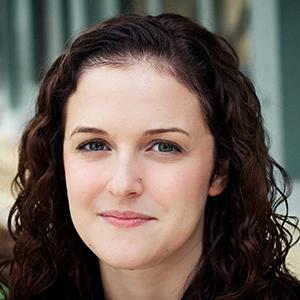
Becoming the boss of your career
The past two years may have left many feeling adrift in their career progression. This workshop’s goal is to encourage, support and empower attendees to take charge of their careers. Facilitator Erica Gobrogge of Van Andel Institute will focus on practical and actionable strategies for setting and achieving your career goals and effectively advocating for your career to your mentor(s), colleagues and institutional leadership. Attendees will develop their own goals, draft action plans and practice navigating potentially challenging conversations necessary to achieve their goals. Takes place on Monday, April 4, at 5:45 p.m. in convention center room 120B.
Pedagogical lessons learned during the time of COVID-19
Higher education experienced unprecedented disruption in spring 2020 when schools were forced to close and virtual instruction replaced classroom learning. What can we learn from the experiences and creative teaching strategies employed out of necessity when schools were shuttered? What worked, what didn’t, and what misconceptions were proved wrong through more than a year of distance learning? As we consider what the new normal in BMB education will look like in the future, we must reflect on the experiences of faculty members and students living and learning through disruption. In this session, a series of short talks building upon a virtual issue from the journal Biochemistry and Molecular Biology Education will set the stage for an open discussion for all attendees. Monday, April 4, at 5:45 p.m. in room 120A.
Outreach
The ASBMB Science Outreach and Communication Committee is dedicated to empowering members of the society to engage their local community and communicate their science effectively. The committee aims to equip members with the tools and resources needed to be successful, and it will be offering several opportunities during this year’s annual meeting.
The power of storytelling
Storytelling is an essential component of communication. It can be used to connect with a diverse audience and make challenging subjects more accessible. Mastering storytelling requires creative flexibility, dexterity with language and willingness to get personal. Learn how to incorporate yourself as a scientist into your science story in a way that strengthens your message without sacrificing scientific integrity. This interactive session will lead participants through hands-on storytelling training that is based on one of the modules from the ASBMB course The Art of Science Communication. It takes place on Sunday, April 3, at 6:00 p.m. in convention center room 123.
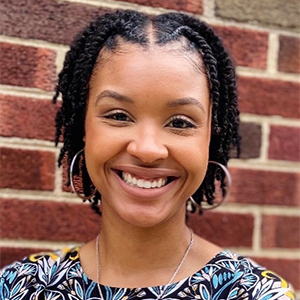
Transforming scientific research into equitable outreach
How do you transform your passion for science into equitable outreach? This interactive session will cover the importance of science outreach and its impacts on enhancing diversity, equity and inclusion within the biomedical science research workforce. Chelsey Spriggs, co-founder of Black in Microbiology (#BlackInMicro) and a member of the first cohort of the ASBMB MOSAIC program, will share her journey as a role model for underrepresented students interested in biological research. She will describe how she has engaged in outreach and mentorship and how, through her work as a board member of the Black in Microbiologists Association, she aims to enhance the visibility of Black scientists in the field. Be ready to have a thoughtful discussion with your peers and brainstorm ways to use science outreach as a vehicle to equity and inclusion. Monday, April 4, at 5:45 p.m. in room 123.
Experimental Biology Career Central
One great benefit of meeting with other societies at the Experimental Biology conference is being able to take part in programming at Career Central. The ASBMB will do its part by presenting a quartet of bite-size sessions focused on developing key skills to support your career progression and exploring different career paths available to those with scientific training. Exhibit Hall A/B, Monday, 12:00-2:00 p.m.

The art of the interview: Ask great questions, give great answers and enjoy the process
No matter where you are in your career, having great interview skills can help you make the next step. When it comes down to brass tacks, an interview is just a conversation. Laurel Oldach, a scientist-turned-science-writer at the ASBMB, will talk about both sides of interviewing: how you can make the most of informational interviews that you conduct and how you can feel more relaxed and prepared when you’re the interviewee.
Exploring careers in science publishing
Ever wonder what it is like to work behind the scenes to bring research to publication? Join members of the ASBMB publications staff to explore the variety of positions in publishing that benefit from scientific training. Speakers will share insights into the different roles, the day-to-day and how to make the leap from research to publishing.
Managing your mentoring relationships through mentoring up
Once you have found a mentor, what comes next in making the most of this relationship? Richard McGee of Northwestern University Feinberg School of Medicine will focus on the essential and critical elements of effective mentoring relationships, with an emphasis on mentoring up — how students and postdocs can use these principles to guide and help their mentors provide what they are seeking from them.
Science policy skills — helpful for scipol and beyond
Whether you are interested in science policy as a possible career or enjoy advocacy to support your science, there is a subset of skills necessary to make you an attractive job candidate or skilled advocate. But did you know that those same skills can help you be a better scientist too? Join ASBMB Public Affairs Director Sarina Neote and members of the society’s Public Affairs Advisory Committee to learn about how to improve those soft skills — and apply them no matter where your career takes you.
Enjoy reading ASBMB Today?
Become a member to receive the print edition four times a year and the digital edition monthly.
Learn moreFeatured jobs
from the ASBMB career center
Get the latest from ASBMB Today
Enter your email address, and we’ll send you a weekly email with recent articles, interviews and more.
Latest in Careers
Careers highlights or most popular articles

From humble beginnings to unlocking lysosomal secrets
Monther Abu–Remaileh will receive the ASBMB’s 2026 Walter A. Shaw Young Investigator Award in Lipid Research at the ASBMB Annual Meeting, March 7-10 in Washington, D.C.

Chemistry meets biology to thwart parasites
Margaret Phillips will receive the Alice and C. C. Wang Award in Molecular Parasitology at the ASBMB Annual Meeting, March 7-10 in Washington, D.C.

Decoding how bacteria flip host’s molecular switches
Kim Orth will receive the Earl and Thressa Stadtman Distinguished Scientists Award at the ASBMB Annual Meeting, March 7–10, just outside of Washington, D.C.

Defining JNKs: Targets for drug discovery
Roger Davis will receive the Bert and Natalie Vallee Award in Biomedical Science at the ASBMB Annual Meeting, March 7–10, just outside of Washington, D.C.

Upcoming opportunities
No matter where you are in your career and what future path you aspire to, everyone needs leadership skills. Join ASBMB for practical strategies for building and practicing leadership skills.

Close out ASBMB 2026 with a bang
The closing reception of the 2026 ASBMB Annual Meeting will be held at the Torpedo Factory Art Center in Alexandra, Virginia.

